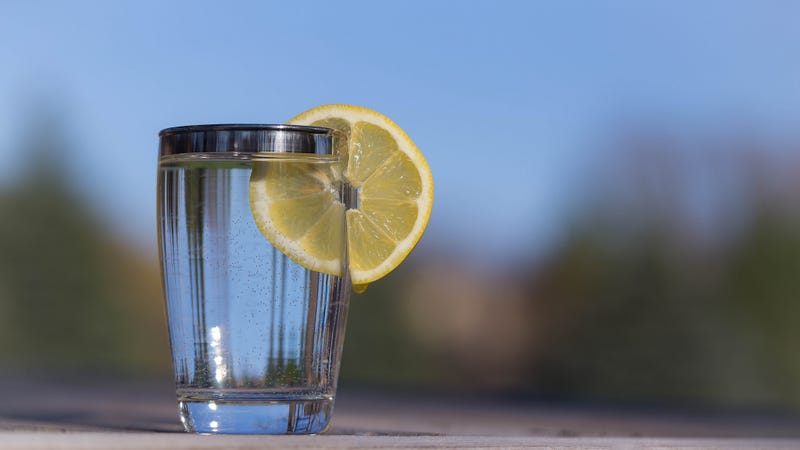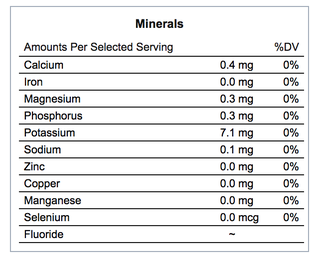
Water: refreshing. Lemons: also refreshing. Combine the two, and you get a drinkable liquid with sprightly flavor. That is all you get. Not a detox elixir, not a metabolism booster. Let me repeat: when you add lemons to water, you just get lemon water.
(And if you also add sugar, you get lemonade.)
If you like to start your day with a glass of warm lemon water, I certainly won’t stop you. But let’s take a look at the supposed benefits of this ritual.
Advertisement
It’s not a magical metabolic tonic. Reader’s Digest, in listing “12 insane benefits” of drinking lemon water, cites a study to support the idea that some of the compounds in lemons “prevent weight gain”. The study was in young mice (who are still growing, hence the study of weight gain) and rather than a morning glass of lemon water, they were given a mixture of polyphenols, chemicals extracted from lemons, in an amount that made up 0.5 percent of their diet. The results were somewhat promising, if you remember that these weren’t people, they weren’t drinking lemon water, and they weren’t losing weight.
It is made of liquid. Another weight loss benefit of lemon water is that it fills your belly so you don’t eat as much breakfast. This is true, but also applies to regular water.
It is very low calorie. Reader’s Digest, again, points out that water with a slice of lemon has fewer calories than if you filled the same size glass with the sugary juice of many oranges. Yes, that’s true. Lemon water is made almost entirely of water.
It won’t “detox” you. Because that’s not a thing.
It’s not full of electrolytes. “Not that I was drinking it straight, but half a cup of lemon juice has about 125 mg of potassium compared to about 211 mg in a banana,” Dina Gachman writes at Prevention. Okay, but if you’re not drinking a half cup of the stuff, what good does that math do us? Here are the numbers for the amount of juice in one lemon wedge. Check out all those zeroes!

It doesn’t help you digest anything. Stomach acid is acidic, and lemons are acidic, so surely lemons help you digest your food, right? First of all, stomach acid is only involved in one small aspect of digestion, so boosting it wouldn’t do much for your body. But it turns out you can’t really change the acidity of your stomach. If you eat something alkaline, your stomach cells squirt out more acid; if you chug lemon juice, they’ll hold back.
Advertisement
It doesn’t provide pectin or any other fiber. Unless you’re chewing and eating the lemon slices, in which case you’ll get a tiny bit.
Don’t get too excited about vitamin C, either. One wedge gives you 4 percent of your daily requirement of vitamin C. If you love your lemon water and drink a whole lemon’s worth, you’re up to 36 percent, which makes it a pretty good source of that vitamin. But you’re getting vitamins in the rest of your food, too, aren’t you? I trust that if you were in danger of developing scurvy you’d hop off your pirate ship and grab a juicy whole orange (138 percent of your daily requirement) on your way to the doctor’s. If you’re just hoping to prevent colds, vitamin C doesn’t do that, but it may shorten colds if you take large doses. As in, way more than what’s in a glass of lemon water.
In conclusion, lemon water is made of liquid, contains few calories, and arguably tastes good. That’s what it has going for it. A glass of lemon water each morning might help you give up a coffee habit (why though) or help you feel like you’re getting your day off to a healthy start, as you gaze out the window and envision the yoga routine you’ll try later. Fine. Whatever. But that’s all it can do.
from Lifehacker http://bit.ly/2BV2gnN
via IFTTT
